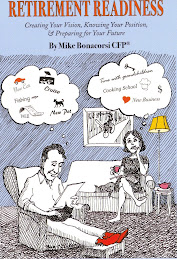Are you a baby boomer caring for parents who are having difficulty dealing with day-to day activities? Many boomers find themselves preparing for their retirement while caring for parents who, due to physical restrictions or mental impairment, are no longer able to maintain the independent life.
As our parents age it will be necessary to discuss with them the possibility that due to illness or injury they may no longer be able to live as independently as they had in the past. In the past, care was usually provided by a family member or if the care required skilled caregivers, a nursing home. Now, families are busier and more spread out geographically than in the past and the parent requiring the skill may not feel comfortable depending on their children for help.
Depending on the level of care needed many options for care are available, some of the more familiar options are:
1) Home Care, can be provided by a skilled care provider. This type of care can provide meals, transportation, assist with bathing and other daily functions. Trained professionals, nurses and therapists, can also provide home services as needed.
2) Adult Day Care can benefit those who are able to get around by providing daily social and health services in a supervised environment.
3) Assisted living facilities provide personal care, housekeeping and assistance with daily functions. Continuing Care Retirement Communities are communities that provide different levels of care from independent living to full-time care.
4) Nursing homes provide skilled nursing care, therapy, and personal care and assistance.
Make sure your parents are involved in the “due diligence” process, give them the opportunity to voice their concerns and pay attention to what they are saying. Remember, they are facing the realization that after spending a lifetime of caring for themselves and others they are the ones that need care.

Two Minute Retirement Readiness Tips
Wednesday, December 23, 2009
Monday, December 7, 2009
Year-End Tax Thoughts
With a little less than a month left in 2009, you still have time to implement some year-end tax planning strategies for the year and review some options for next year.
Reviewing your investments is a good place to start if you have investments that have lost money now may be the time to sell. By selling at a loss, less than your purchase price, you can offset taxes on current or future capital gains. If you do not have gains or unused losses you are allowed to carryover the losses to future years, until exhausted.
If you qualify for a deductible IRA contribution you have until April 15, 2010 to make a 2009 contribution. Your ability to take a deduction will depend on income and qualified plan participation but it should be considered.
Contributing to a qualified charity either cash or property may qualify for a tax deduction. It is important to note detailed record keeping of the contribution including amount, date, and acknowledgement by the charity is necessary; gifts above $250 require stricter documentation.
First time homebuyers received an extension on the tax credit, up to $8000 that was set to end last month. Certain conditions must be met before you can qualify for the credit:
1) You must be a first time homebuyer. A first time homebuyer has not owned a home within the last three years and the purchase must be the buyer’s primary residence.
2) Income limits apply. The full credit is available to buyers with modified adjusted gross income (MAGI) of up to $125,000 or $245,000 joint. The credit is reduced up to $145,000 and $245,000 and not available at higher incomes.
3) In order to qualify there has to be a contract to buy in place by May 1 and the sale must be closed by July 1. If the purchase completes in 2009, it can be applied to the buyers 2008 or 2009 income tax, if completed it 2010 it can be applied to either the 2009 or 2010 tax return.
4) Existing homebuyers can also take advantage of the credit. If they have lived in their existing, home for at least five out of the past eight years and use the purchase as a primary residence. The credit for existing homebuyers is lower, up to $6500.
Energy improvements to your home can provide up to $1500 in tax credits and up to $3400 may be available for the purchase of certain hybrid vehicles.
Year-end tax strategies require thought and planning, the decision to take the credit or deduction in the current year or waiting until the following year will depend on your situation. It is important you sit with your financial advisor and tax advisor to determine the correct strategy for you.
Reviewing your investments is a good place to start if you have investments that have lost money now may be the time to sell. By selling at a loss, less than your purchase price, you can offset taxes on current or future capital gains. If you do not have gains or unused losses you are allowed to carryover the losses to future years, until exhausted.
If you qualify for a deductible IRA contribution you have until April 15, 2010 to make a 2009 contribution. Your ability to take a deduction will depend on income and qualified plan participation but it should be considered.
Contributing to a qualified charity either cash or property may qualify for a tax deduction. It is important to note detailed record keeping of the contribution including amount, date, and acknowledgement by the charity is necessary; gifts above $250 require stricter documentation.
First time homebuyers received an extension on the tax credit, up to $8000 that was set to end last month. Certain conditions must be met before you can qualify for the credit:
1) You must be a first time homebuyer. A first time homebuyer has not owned a home within the last three years and the purchase must be the buyer’s primary residence.
2) Income limits apply. The full credit is available to buyers with modified adjusted gross income (MAGI) of up to $125,000 or $245,000 joint. The credit is reduced up to $145,000 and $245,000 and not available at higher incomes.
3) In order to qualify there has to be a contract to buy in place by May 1 and the sale must be closed by July 1. If the purchase completes in 2009, it can be applied to the buyers 2008 or 2009 income tax, if completed it 2010 it can be applied to either the 2009 or 2010 tax return.
4) Existing homebuyers can also take advantage of the credit. If they have lived in their existing, home for at least five out of the past eight years and use the purchase as a primary residence. The credit for existing homebuyers is lower, up to $6500.
Energy improvements to your home can provide up to $1500 in tax credits and up to $3400 may be available for the purchase of certain hybrid vehicles.
Year-end tax strategies require thought and planning, the decision to take the credit or deduction in the current year or waiting until the following year will depend on your situation. It is important you sit with your financial advisor and tax advisor to determine the correct strategy for you.
Subscribe to:
Posts (Atom)

